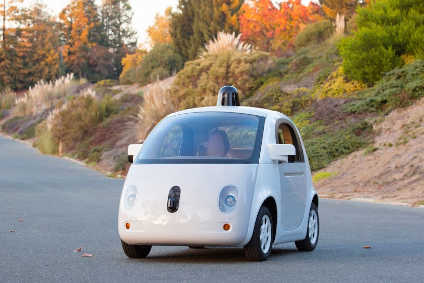
The road to the driverless car is fraught with potholes it seems. Despite being given licence to trial autonomous vehicles in California, carmakers and technology companies are falling foul of red tape.
California state laws require a human presence behind the wheel of robot cars, with no exceptions, and just as well it seems. Google has revealed that humans have had to take the wheel of its driverless cars 341 times over 14 months to avoid accidents and software failures.

Discover B2B Marketing That Performs
Combine business intelligence and editorial excellence to reach engaged professionals across 36 leading media platforms.
The US state requires all autonomous vehicle testers to report failure incidents and Google's figures are revealed in a filing with the California Department of Motor Vehicles.
Volkswagen Group of America, Mercedes Benz, Delphi Automotive, Tesla Motors, Bosch, Nissan, Cruise Automation, BMW, Honda and Ford have also been approved to test autonomous cars in California.
Google has clocked up more than 1.3m autonomous miles in California and Texas since testing began in 2012, and said its 53 vehicles had never been responsible for an accident. However, the filing reveals that humans have had to intervene 13 times to avoid an collision between September 2014 and November 2015, and in another 69 cases, the driver had to take control to prevent dangerous driving.
In 272 cases, meanwhile, drivers had to take the wheel to deal with "software failures" such as failing to perceive obstacles or not anticipating pedestrians crossing the road.
Google said its drivers "err on the side of caution and take manual control if they have any doubt about the safety of continuing in autonomous mode", and added that the number of human interventions is rapidly reducing.
A report from Google stated: "As we continue to develop and refine the self-driving software, we are seeing fewer disengagements of this type despite a growing number of miles driven each month. The number of autonomous miles we are driving between immediate manual control disengagements is increasing steadily over time."
Chris Urmson, the head of Google's driverless car project, added: "This trend looks good, and we expect the rate of these incidents to keep declining. Although we're not quite ready to declare that we're safer than average human drivers on public roads, we're happy to be making steady progress toward the day we can start inviting members of the public to use our cars."
Proponents of driverless cars believe that the technology is inevitable and will be many times safer than human vehicles. A recent study by the Virginia Tech Transportation Institute found that autonomous cars will be objectively safer than regular ones.






